Spring 1
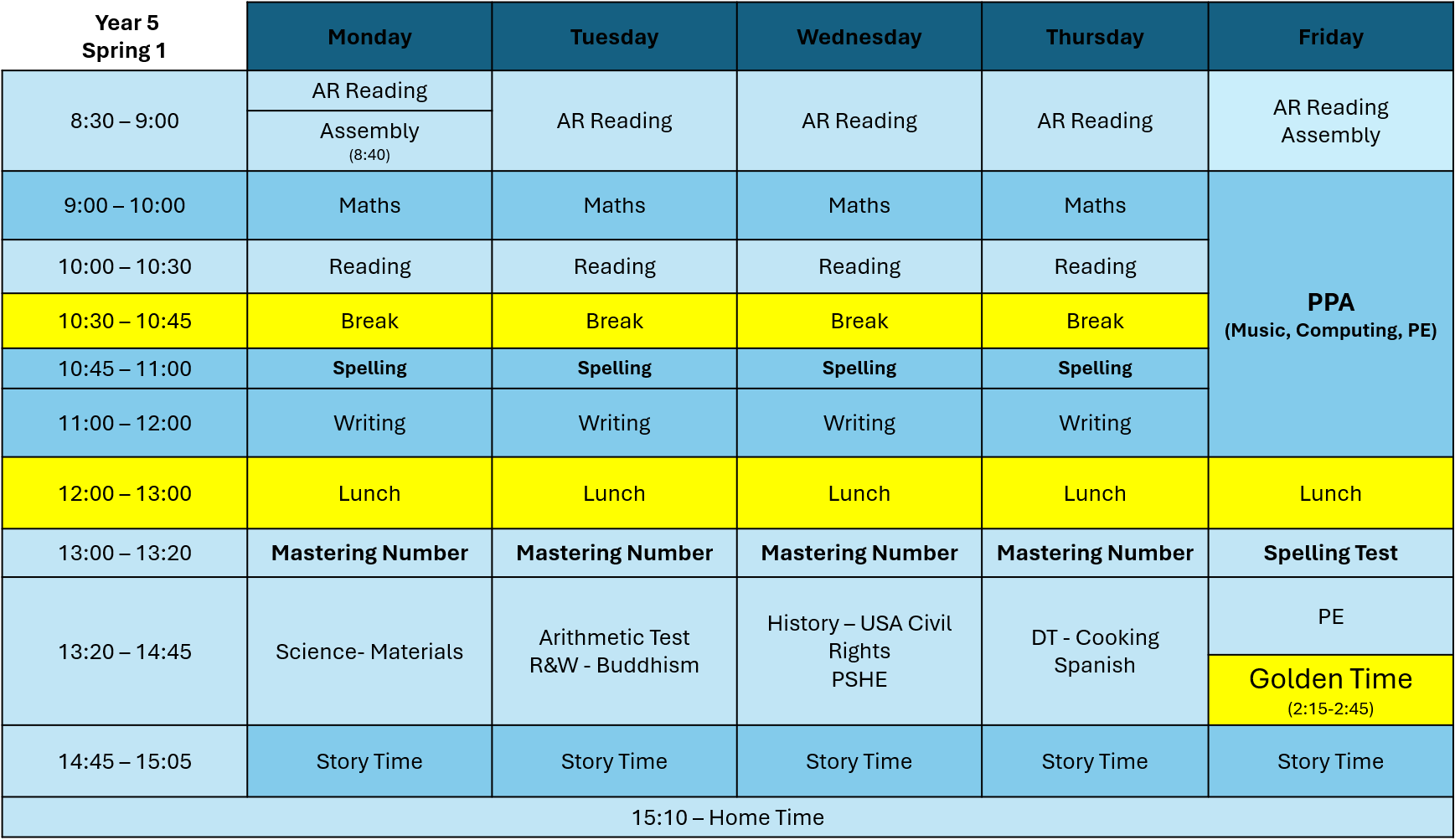
Maths
This half-term in maths, children will be studying the following topics:
Fractions
- Converting improper fractions
- Converting mixed numbers
- Comparing and ordering fractions less than 1
- Comparing and ordering fractions greater than 1
- Add and Subtract fractions with the same denominators
- Adding and subtracting mixed numbers
Multiplication
- Multiply up to 2-digit numbers by up to 4-digits
- Short Division with up to 4-digits
- Divide with remainders
- Solve problems with multiplication and division
Mastering Number
What is involved?
Knowledge of multiplication and division and its applications forms the single most important aspect of the KS2 curriculum, and is the gateway to success at secondary school. This project enables pupils in Year 5 to develop fluency in multiplication and division facts, and a confidence and flexibility with number that exemplifies good number sense.
What will the children learn?
- Year 5 will develop automaticity in multiplication and division facts through regular practice.
- Year 5 pupils will make progress in their knowledge and understanding of multiplicative concepts.
Writing
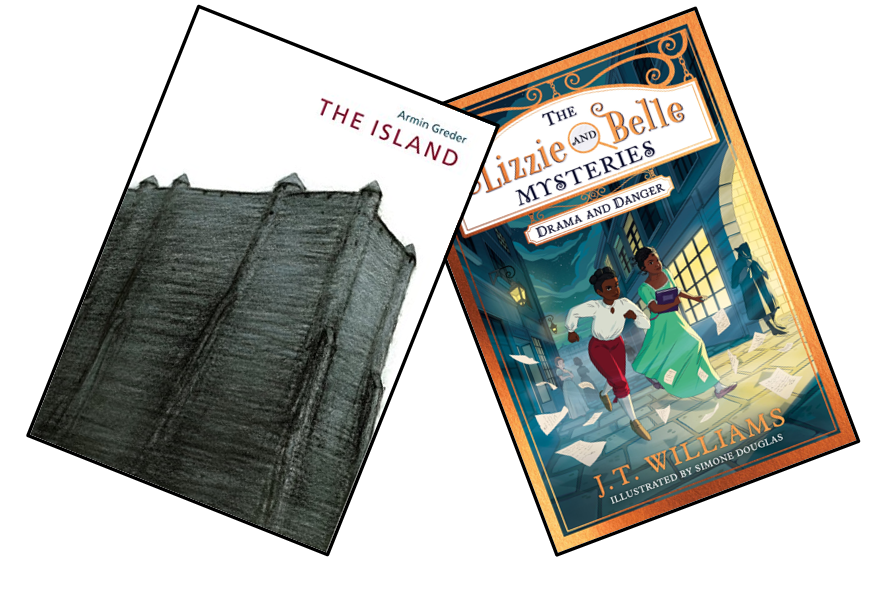
This half-term, we will be studying two texts: The Island by Armin Greder and The Lizzie and Belle Mysteries by J.T. Williams.
We will continue to focus on developing the key skills required to be successful in Year 5:
- Presenting work with care, including using cursive handwriting
- Editing work, looking specifically at spelling, punctuation and grammar
We will continue putting emphasis on children trying to embed key features of Upper Key Stage 2 writing into their daily writing, including:
- Relative clauses - The boy, who had short brown hair, kicked the ball.
- Subordinate clauses - Because the men had been at sea for many years, Odysseus knew that they must return home soon.
- Modal verbs - I can hear the wind howling as the storm clouds envelope our town. I should run but I will not.
- Using a range of punctuation - : ; ( ) -
We will also continue to encourage children to WRITE LESS, BETTER. We want children to focus on producing quality pieces of writing, and this is much easier when the expectation of work produced is reduced.
We will be using the following writing outcomes to evidence our children's progress in the aforementioned areas:
- Diary Entry as 'The Foreigner' from The Island
- A Fact File of a character of our choice from The Lizzie and Belle Mysteries
The Island - Synopsis of Text taken from Literacy Tree
When the people of the Island discover a man and a tattered raft on their beach, they are reluctant to take him in. He doesn't look like them. But they cannot send him back to the sea where he will surely perish. Instead, they put him aside but even that doesn't solve their problem.
The Island is an astonishing and powerful picture book about refugees, xenophobia, multiculturalism, social politics and human rights. It tackles big themes in subtle ways with a fable-like text and stunning artwork that will provoke discussion for upper primary and secondary school levels about issues that remain so much a part of our national discourse.
The Lizzie and Belle Mysteries - Synopsis of Text taken from Literacy Tree
Twelve-year-olds Lizzie Sancho and Dido Belle are from different worlds – Lizzie lives in Westminster in her dad’s tea shop, while Belle is an heiress being brought up by her aunt and uncle at grand Kenwood House – but they both share a love of solving mysteries.
And when their eyes meet in the audience of the Drury Lane theatre one night, both girls are sure they’ve seen something suspicious on stage.
Lizzie and Belle soon find themselves on the trail of a mystery – and becoming best friends. But can they work out what’s going on in time to prevent a murder?
Reading
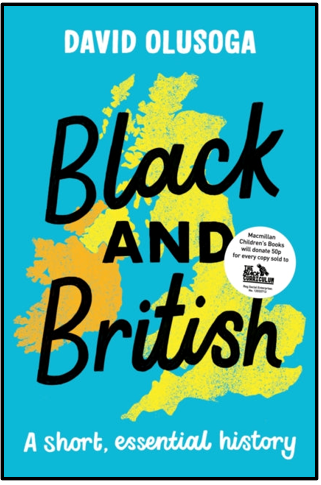
This half-term, we will be reading Black and British: A short, essential history by David Olusoga which will link nicely with our USA Civil Rights history topic.
Black and British: A short, essential history
We chose this children's version of David Olusoga's Black and British: A Forgotten History as a Literary Leaf as it presents children with an essential opportunity to study often-overlooked details of British history. At a time when there is huge debate around the best ways to teach children about race and the history of the British Empire in the classroom, Olusoga himself describes this book as 'the book I wish I had been given to read when I was at school'. Throughout, children will be presented with thought-provoking questions and provided with answers otherwise not encountered on the History Curriculum.

Vocabulary
Children will have the opportunity to explore unknown vocabulary in the passage.
They will be introduced to words through explanations in everyday connected language, rather than dictionary definitions.
Prosody
Children will have regular opportunities to hear their teacher read.
Pupils can then orally rehearse and practice reading the passage. This can be read in pairs, so there is an ‘audience’. Children will also have opportunities to read in groups and complete individual performances for the class.
Language for effect
Here, children will unpick the choices made by the author and the impact this has on the text and therefore the reader.
We will look at particular phrases and sentences rather than whole passages.
Children will have the chance to revisit vocabulary from the first session and see how effective it is within the context of the sentence.
Comprehension and Oracy
Children will have the opportunity for informal book talk.
Chances will be given to discuss the book as a class.
Written work may take place in the form of comprehension – retrieval, inference, sequencing style questions.
Reading for Pleasure
Finally, children will have the chance to read on in the text – this will also be done in your Story Time.
Spellings
Spellings is now taught daily in short, sharp, 15-minute lessons following the same lesson structure every day:
Year 5 will continue this new approach to spellings, which has been very successful so far. Children have been really engaged in lessons and I know that they have really enjoyed them. We want our children to focus on accuracy, independence, and being able to spot errors and correct them whilst editing.

Quick Review
- Practise a word from the previous lesson's rule or focus.
Teach and Practise
- Introduce words that follow a new spelling rule
- Read the works fluently as a class
- Locate sounds on 'Grow the Code poster - see below
- Add sound buttons and locate focus grapheme or manipulate words.
Practise and Apply
- Spelling 3–4 words that follow the rule and include the focus grapheme
Review
- Recap on rule and add the new rule to a display
On Fridays, children will be introduced to 'prickly spellings', which are Challenge Words. These will be linked to the Year 5 and 6 Spelling list.

History
USA & Fight for Civil Rights
This is an emotive unit of work, where racism features significantly throughout. Staff will ensure that we are sensitive in how we cover this, especially in terms of any original sources that may be used, such as photographs or video clips from the time. We are teaching the chronology of the civil rights movement from the Civil War onwards and must focus on the key events and people that drove the gradual changes. It’s also a key element of this unit to be quite explicit about the fact that racism is still a significant problem across the world, but particularly in some parts of the Deep South of the USA. The children will be taught that civil rights for all is a continuum, and we hope to help them recognise how far along America is, but also how much further remains to go.
LINKS: Music The Blues / DT: Soul Food
Science
Materials
National Curriculum 2014 Objectives
Pupils should be taught to:
- Compare and group together everyday materials on the basis of their properties, including their hardness, solubility, transparency, conductivity (electrical and thermal), and response to magnets
- Know that some materials will dissolve in liquid to form a solution, and describe how to recover a substance from a solution
- Use knowledge of solids, liquids and gases to decide how mixtures might be separated, including through filtering, sieving and evaporating
- Give reasons, based on evidence from comparative and fair tests, for the particular uses of everyday materials, including metals, wood and plastic
- Demonstrate that dissolving, mixing and changes of state are reversible changes
- Explain that some changes result in the formation of new materials, and that this kind of change is not usually reversible, including changes associated with burning and the action of acid on bicarbonate of soda
Materials are the matter from which a thing is made from. Usually split into four categories: metals, ceramics, polymers and composites.
Design and Technology
In DT this half-term we will be looking at a Healthy Food Plate. We will be exploring quiches and design our own fillings. We will even be making our own pastry! Look out for some delicious recipes heading your way!
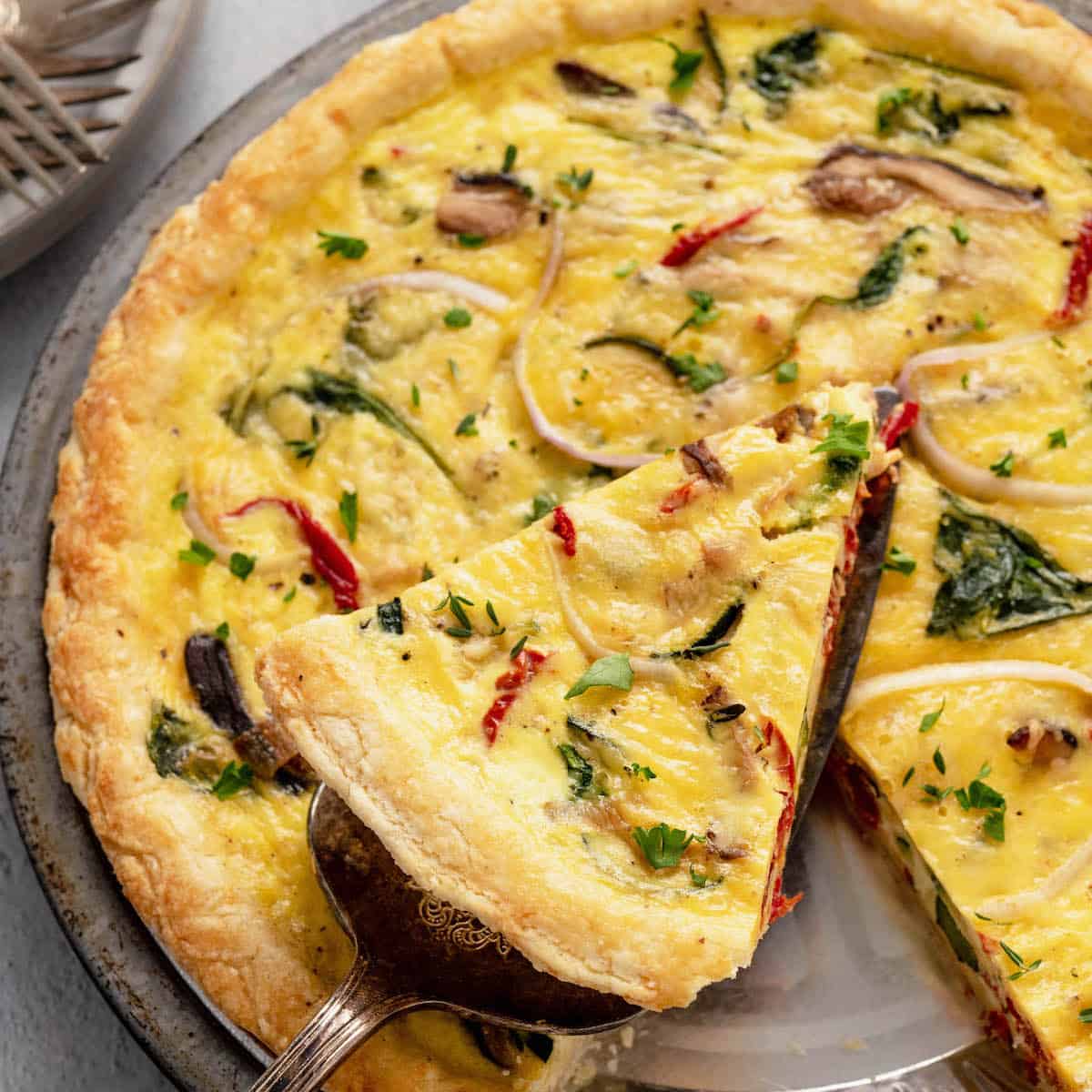
Religion and Worldviews
In Religion and Worldviews this half-term, children will be studying the life and teachings of the Buddha, with a focus on our enquiry questions: Is it possible for everyone to be happy?
PSHE
This term we are going to explore how we can protect the environment and how we can show compassion towards others as well as investigating different media types, their role and their impact. Finally, children will take quizzes to identify job interests and aspirations and discuss what may influence their career choices.
We will continue to embed the three Golden Rules, as well as other pupil expectations, both in class and whilst moving around the school.
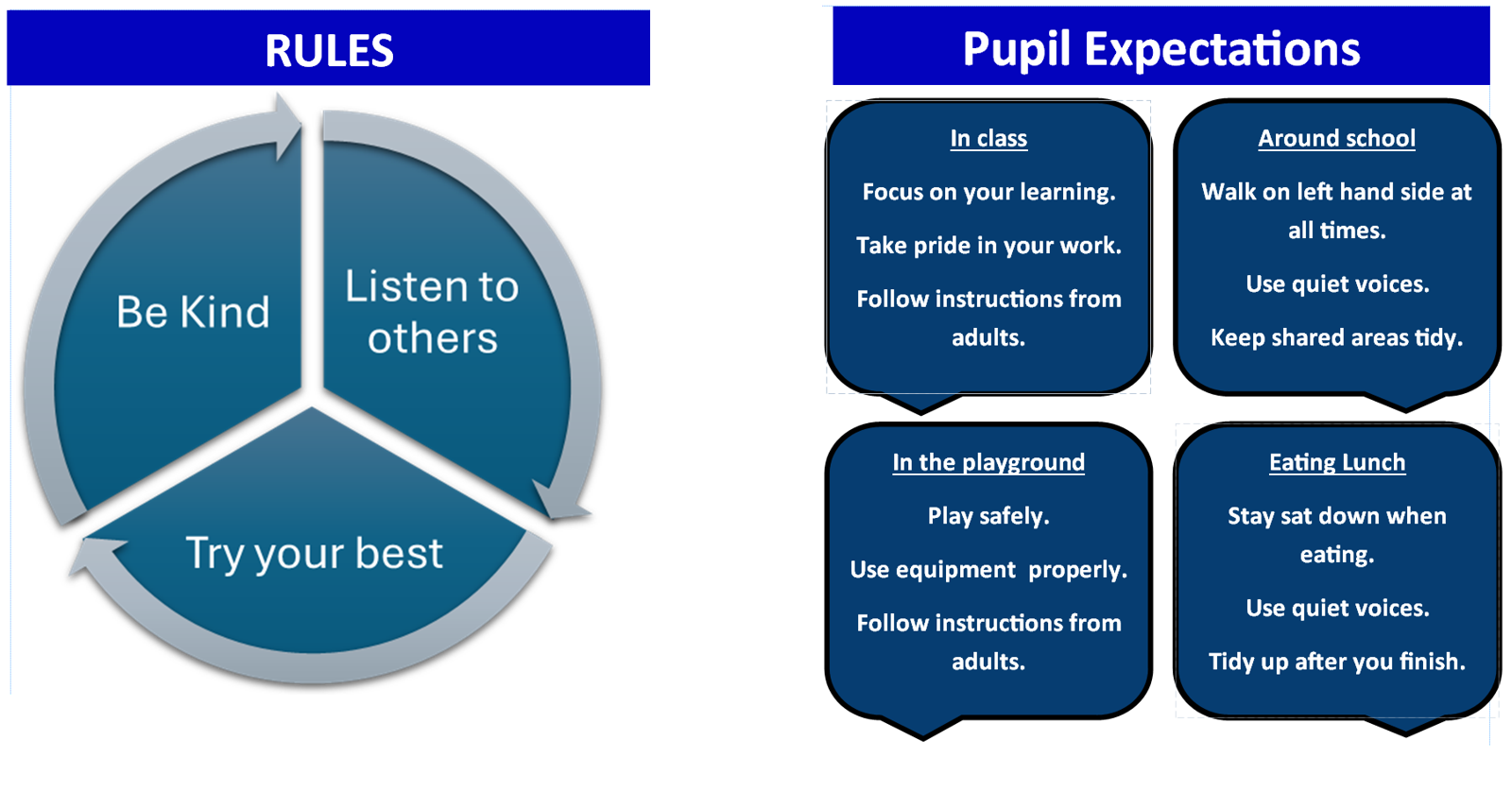
Spanish

This half-term in Spanish, we will be learning about the face and body parts and how to describe using adjectives.
PE
This half-term, both of our PE sessions will be on a Friday.
Children will be continuing gymnastics this half-term, as well as learning about a range of Invasion Games.
